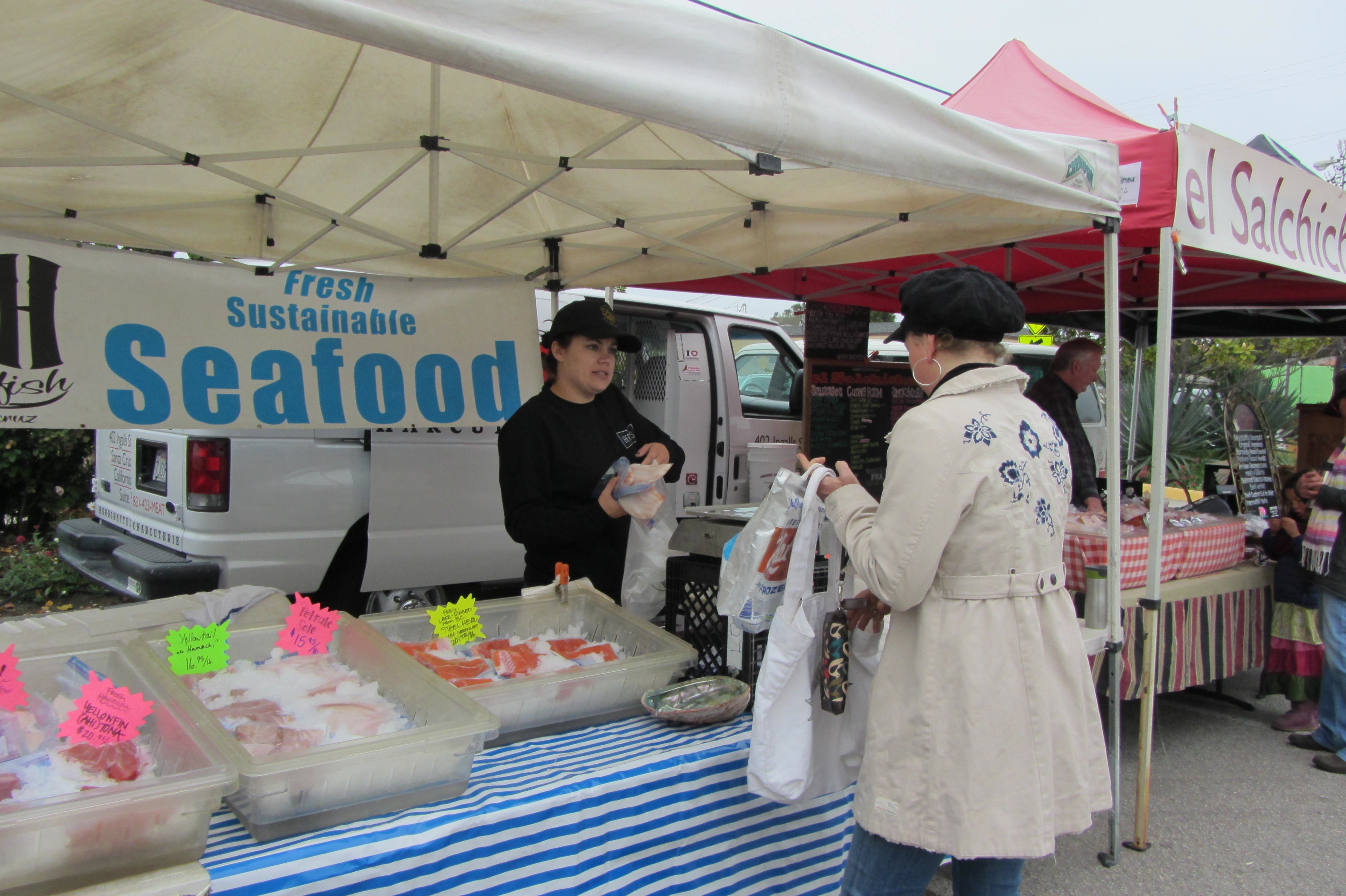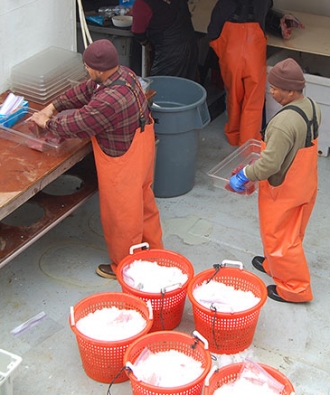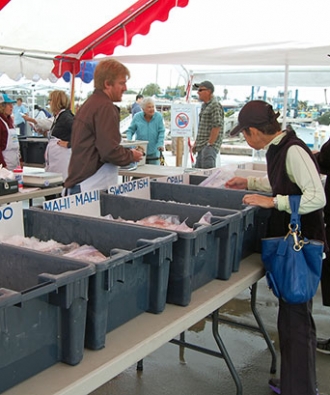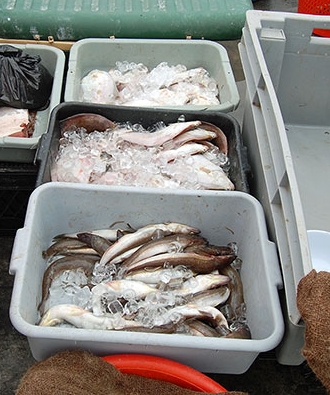
Fishermen’s and farmers' markets are temporary or fixed retail markets where space is obtained (usually for a small fee) for a specified day and time. Through this alternative market, fishermen sell their seafood directly to consumers and, when permitted, local chefs and caterers. Fishermen’s markets usually are located at a local harbor/port, whereas farmers’ markets often are located elsewhere in town. These markets tend to be well established in the community, and may provide general advertising to attract customers. The diversity of vendors and products also typically attracts a larger and more diverse group of potential customers compared to more individualized markets (e.g., off-the-boat sales). The regular face-to-face interactions with consumers can help build a loyal customer base, with the likelihood of expanding via word-of-mouth. Note that fees, insurance, time commitment and other requirements for vendors vary among these markets.
To evaluate whether this type of alternative market is an option for you, explore the benefits and challenges (in addition to those on the Considerations page), key questions, tips and resources in the boxes below.


